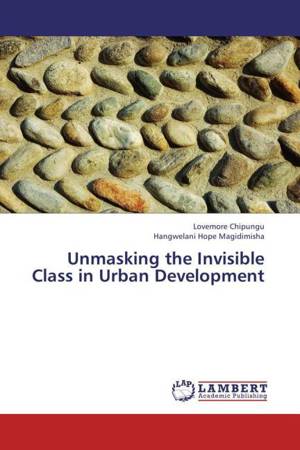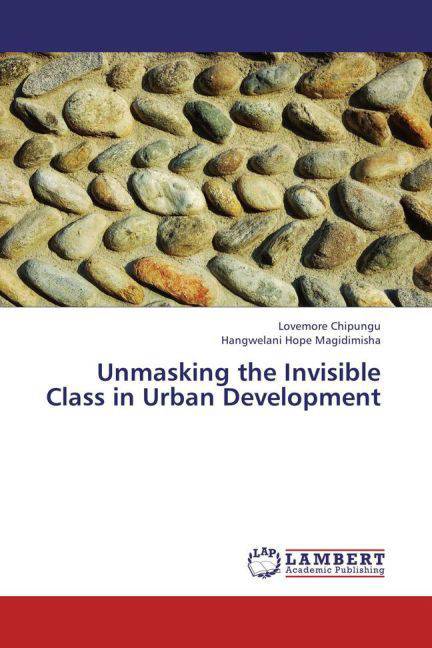
Je cadeautjes zeker op tijd in huis hebben voor de feestdagen? Kom langs in onze winkels en vind het perfecte geschenk!
- Afhalen na 1 uur in een winkel met voorraad
- Gratis thuislevering in België vanaf € 30
- Ruim aanbod met 7 miljoen producten
Je cadeautjes zeker op tijd in huis hebben voor de feestdagen? Kom langs in onze winkels en vind het perfecte geschenk!
- Afhalen na 1 uur in een winkel met voorraad
- Gratis thuislevering in België vanaf € 30
- Ruim aanbod met 7 miljoen producten
Zoeken
Unmasking the Invisible Class in Urban Development
Lovemore Chipungu, Hangwelani Hope Magidimisha
Paperback | Engels
€ 47,95
+ 95 punten
Omschrijving
Historically, the urbanisation process in Zimbabwe was designed to facilitate the development of a prosperous settler community with black Africans providing migrant labour. The black Africans were seen as sojourners in the urban areas. This two-legged existence in both rural and urban areas meant that only the able-bodied were resident in the urban areas but who would eventually retire to their rural homes on termination of their employment contracts. This implied that only the colonial settlers eventually retired in the urban areas, a factor which necessitated the then colonial government to put in place welfare measures for the elderly people. On the other hand, the loosening up of the racist political framework in 1980 opened urban areas to the black Africans not only for employment, but also legitimised their residence in urban areas more permanent basis. But then, what is the government doing to accommodate and improve the welfare of this greying population in the urban environment? What are the survival strategies of the elderly people in urban areas? This book will try to answer these questions.
Specificaties
Betrokkenen
- Auteur(s):
- Uitgeverij:
Inhoud
- Aantal bladzijden:
- 56
- Taal:
- Engels
Eigenschappen
- Productcode (EAN):
- 9783659425820
- Verschijningsdatum:
- 21/08/2013
- Uitvoering:
- Paperback
- Afmetingen:
- 150 mm x 220 mm
- Gewicht:
- 104 g

Alleen bij Standaard Boekhandel
+ 95 punten op je klantenkaart van Standaard Boekhandel
Beoordelingen
We publiceren alleen reviews die voldoen aan de voorwaarden voor reviews. Bekijk onze voorwaarden voor reviews.









